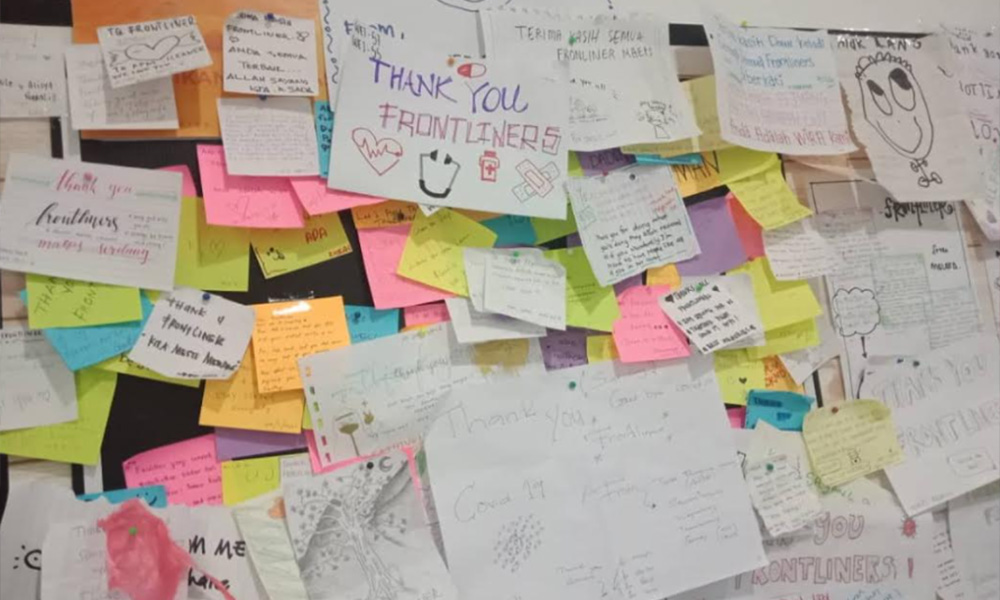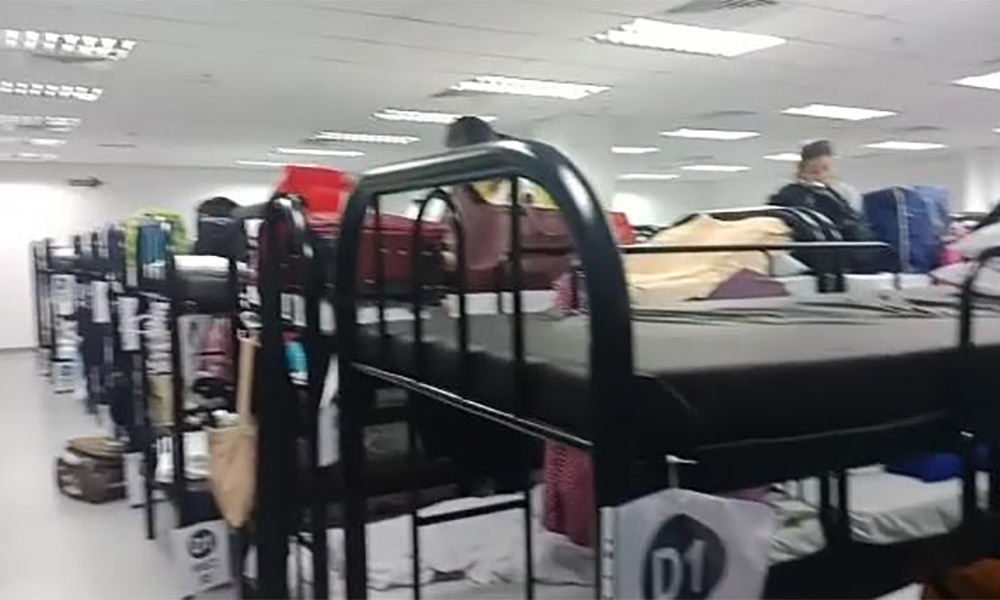A recovered patient who was quarantined in Malaysia Agro Exposition Park Serdang (Maeps) Quarantine Centre complained that the chaotic situation in the centre is because the procedure is badly organised.
Jessica (not her real name) is a Category 2 patient who was tested positive at the end of April and was sent to Maeps by ambulance on May 6.
She told Malaysiakini that she arrived at Maeps around 6.45pm, but was only able to complete the lengthy and redundant registration procedure at 12.30am midnight.
Before she was able to reach her bed, she spent around five hours queuing for three different registration counters, having to stand and wait for most of the time.
Jessica, a salesperson, was puzzled as the different registration counters collected the same personal details from them - identification card number, date of case confirmation, whether she had any symptoms, medical history and handphone number.
“We queued three times, but they asked for the same information... If so, why can’t we settle it in one registration counter?”
She said the baffling procedure seemed to further exhaust medical personnel who are already overworked, in addition to tiring out queueing patients.
“Why can’t they have a system to manage all these details? Don’t give troubles to the medical personnel, even an undergraduate student is capable of creating a simple form (to collect patients’ data).”
“Other patients and myself are upset that the medical personnel were put in such a busy and tiresome condition due to this strange procedure.”
New patients left to themselves
Staff at the first registration counter also did not give any instructions to patients who had just arrived, resulting in the latter having no knowledge of where to queue for registration.
After waiting for some time, Jessica asked others and then she learned that the staff will not call the patients’ names one by one and there was no queue.
Instead, she was told to “occupy” the red chairs at the front row and the empty chairs at the registration counter in order to be registered.
She recalled there were senior citizens, who were alone and couldn't speak Malay, who waited in a corner for a long time as they did not know what to do.
Some patients also became impatient and confronted and scolded the medical personnel.
Jessica said she sympathised with the overworked medical personnel but she understood why the patients were annoyed.
“You really don’t need to employ medical personnel to do such work, anyone would be able to manage the registration work after a day of training, it is unnecessary to waste medical resources.”
Unverified information among patients
Throughout the two nights she spent in Maeps, Jessica found that patients were unable to get clear information and instructions.
“There is a lack of information, even though they have announcements, they are very vague and conflicted,” adding that she had talked to other patients and learned a few tips for “surviving Maeps”.
She said patients were also not informed of the discharge procedure. Only after making several inquiries, she learnt that names of patients who will be discharged tomorrow are listed on the wall daily.
Other vital information that was not clearly laid out to new patients were where to collect their meals, health assessment, and so on.
The lack of information led to patients acting on unverified information being circulated among themselves.
“It is understandable that the staff are busy and they don’t have time to explain to us, but why don’t they post a notice and explain all these? We were very nervous when we just got in and people definitely would have read it themselves,” Jessica said.
She also said patients should have been told beforehand that items such as pens, cups, extension wires, and various metal products are prohibited at Maeps as many have had to hand them over upon arrival.
‘I was told to go to the hospital’
A few days after she tested positive for Covid-19, she told the Health Ministry (MOH) that she had mild symptoms and her living conditions are suitable for self-quarantine.
The MOH officer she was on the phone with agreed, but she later received another call from the ministry which told her that she had to perform a health assessment as she continued to show symptoms.
They told her this would be performed at a hospital, which Jessica double-checked, before an ambulance picked her up from her home an hour later.
It was only when she arrived at her destination that she realised she was at Maeps.
Jessica said she accepted the situation but insisted that she should have been assessed as told as well as given treatment and medical advice.
No quality rest at Maeps
Meanwhile, Jessica said she couldn’t rest well in Maeps and she would’ve preferred self-quarantine at home.
The central air-conditioning was too cold, she had to keep tabs on rumours, and to make sense of the quarantine arrangements.
Maeps also had a broadcasting system that was running round the clock, which announced patients’ discharge arrangements, accommodation changes, and health assessment notices, even after midnight.
Jessica also noted that even though patients’ phone numbers were collected three times upon entry, they were not used when authorities were trying to locate the individuals.
She was eventually discharged on May 8 after her symptoms subsided, but she felt so worn out that she applied for leave days before heading back to work.
Previously, a Covid-19 patient shared on Twitter his lengthy registration process at a Covid-19 Assessment Centre as well as at Maeps, in which he said he was shocked to have been sent to a converted parking area with no showers provided.
In response, the Selangor Health Department said the increased number of cases had drastically increased the workload at the CAC.
In another statement, the health department said that Maeps is currently over-capacity for Covid-19 patients under Category 3. The statement also mentioned that there are plans to increase the capacity Category 3 patients to 1,000 beds. - Mkini






No comments:
Post a Comment
Note: Only a member of this blog may post a comment.